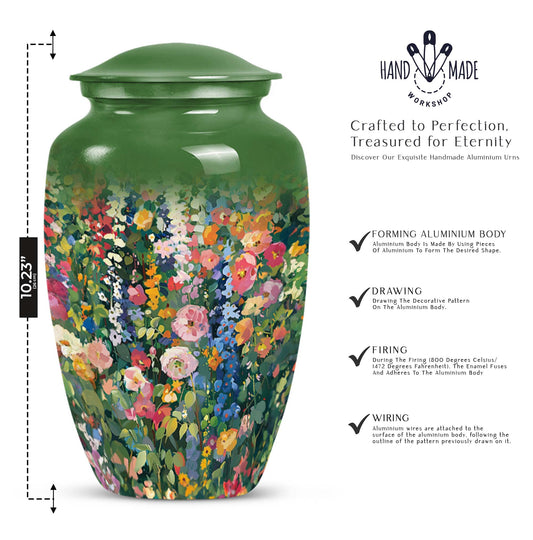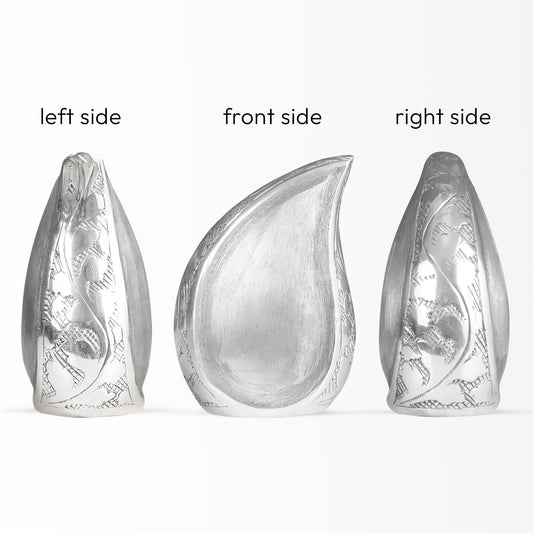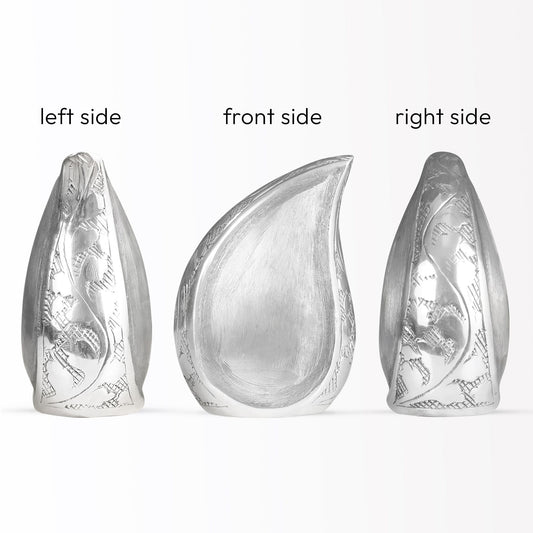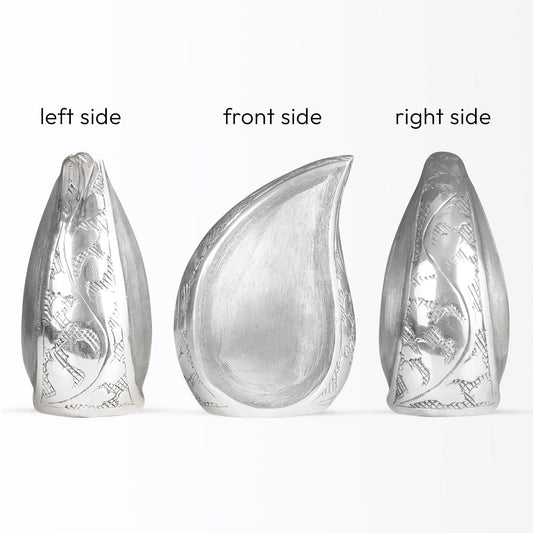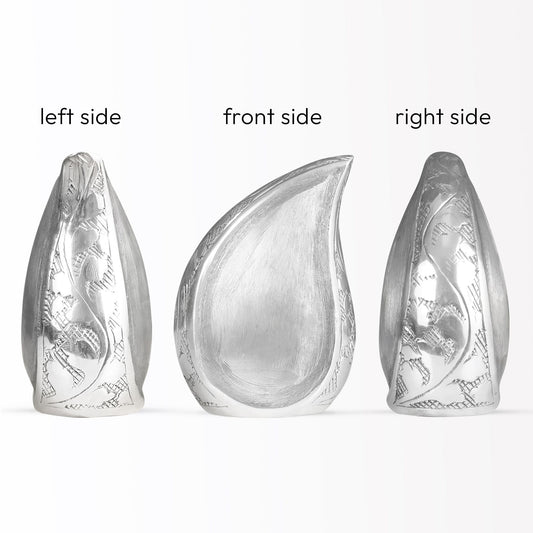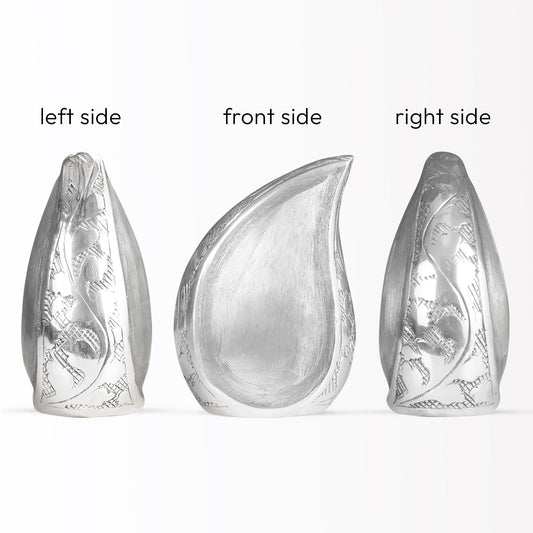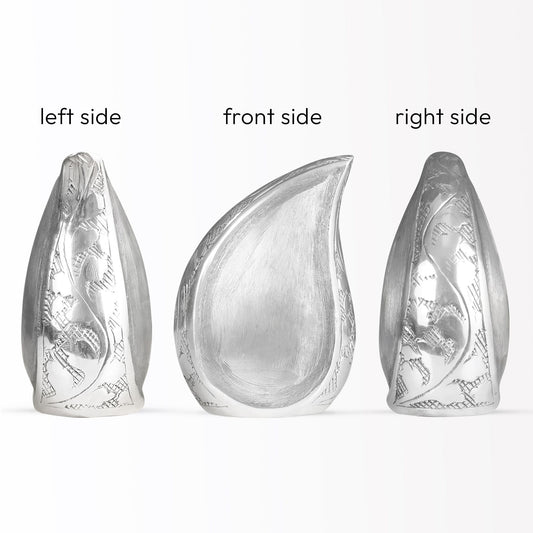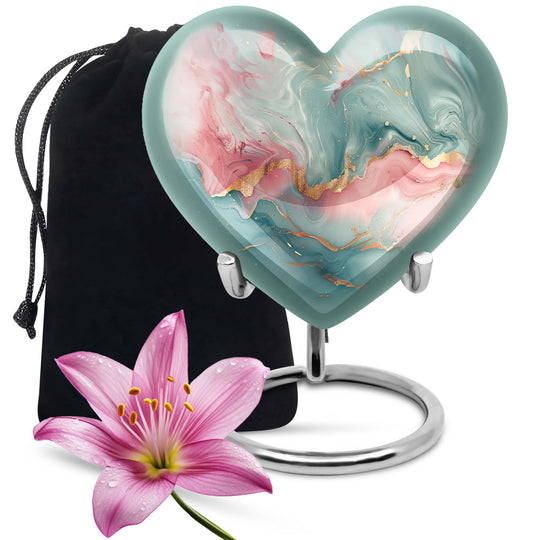Popular Urns
How to Reply to 'Sorry For Your Loss'

WAYS TO RESPOND WHEN SOMEONE SAYS SORRY FOR YOUR LOSS
When people say to me, "I'm so sorry for your loss," it is somehow both comforting and challenging in one breath. The sentiment is heartfelt, but knowing how to respond sometimes feels daunting. Here's a cheat sheet to navigate these interactions with graciousness and authenticity.
Understanding the Sentiment:
First of all, people say, "I'm so sorry for your loss, " to show someone that they care and are there for them when everything is just going down the drain. It acknowledges the pain from your loss and shows that the speaker is sharing in your sorrow even though they might not be able to understand the depth of your feeling. They mean to soothe and to let you know they will be there with you.
Your Emotional State:
Grieving is a very individual event, and your response may be different depending upon your emotional state at the time. There is no one "right" response; rather, your reaction should match how you are feeling and what works best for you at the time.
Simple and Sincere Responses:
If you are having difficulty considering what to say, a very simple and very sincere response will do. Here are a few examples:
- “Thank you for your kind words." It would acknowledge their sympathy and you are not required to get into details of how you really feel.
- "I am very grateful for your support at this moment." This would indicate that your gesture and show of support is greatly appreciated.
- "It means so much to me that you called. "This would indicate that you will be grateful and it keeps in mind the effort they have made to comfort you.
These responses are appropriate if you don't feel ready or simply do not want to enter further into a conversation.
Conversating:
If you are feeling it, you may want to have a longer conversation. Sometimes this can be a good way to share memories or your feelings.
For example:
- "Thank you. [Name of the deceased] was such a special person. I have been thinking a lot about [something positive done, said, or handled by the person who is now deceased]." The sharing of a personal memory is therapeutic and helps honor your loved one as well as understand some of the support given to you.
- "Thank you for your condolences. It's been hard, but talking with people who know [Name] helps." This can lead to a conversation about the deceased and may be further comforting due to shared memories.
When Words Are Hard:
At times, emotions may be hard to express. It is absolutely appropriate to respond non-verbally or to use other forms of acknowledgment:
- A nod and a smile can convey appreciation when words are hard to say.
- A hug or a handshake may be appropriate depending upon your relationship and comfort with the individual.
Responding to Frequent Condolences or Non-personal Condolences:
If you are hearing condolences repeatedly, or from individuals with whom you are not close, you may feel overwhelmed. You can respond briefly.
"Thank you for thinking about me." This can be a quick, polite response to allow you to move on without elaboration or you can say something like this too-
"I appreciate your condolences." This keeps the level of formality while you are thankful.
Overwhelmed
At times, during such solemn moments, you cannot afford to talk with all of them. Take good care of yourself and set the limits where necessary:
"I am not up to speak with anyone right now, but thank you for having my back." You are informing the others here that you need space, and you value their concern.
"I appreciate your sympathy; I need some time to process everything." This tells them you want some time to yourself while still appreciating their act.
Conclusion:
How to respond to "I'm sorry for your loss" is all about balancing your needs with making sure people know you hear and appreciate their support. Whether you want a simple acknowledgement or one that requires a longer response, the trick will be being true to your emotions and communicating in a method that feels right for you. Grief is a difficult journey, and while there isn't a perfect response, showing gratitude and allowing yourself space to get through your emotions will help you manage these interactions with grace.
Still if you find it difficult then you can either do your own research on how to deal with grief or take the help of a professional practitioner.
ALSO READ:
Who has the Right to Ashes After Cremation
How To Save Money on Funeral Expenses
How To Pre-Plan Your Own Funeral
Different Colors of Mourning in Various Countries













